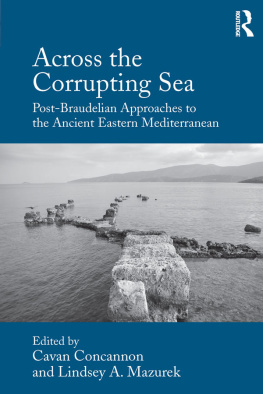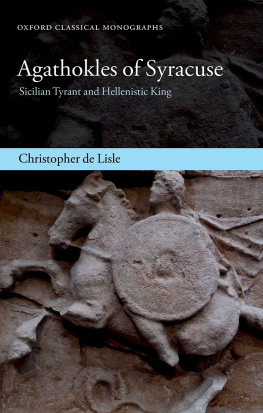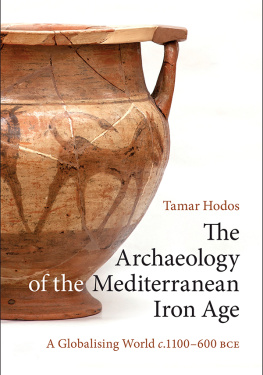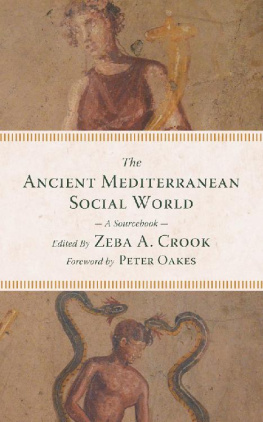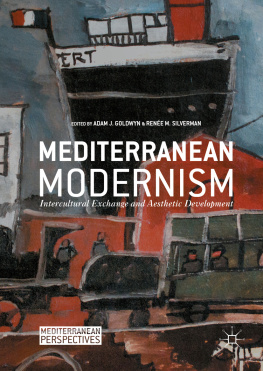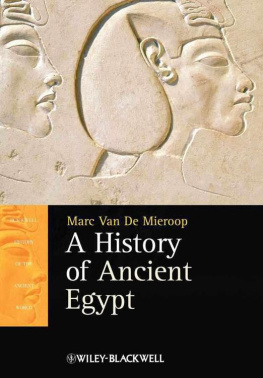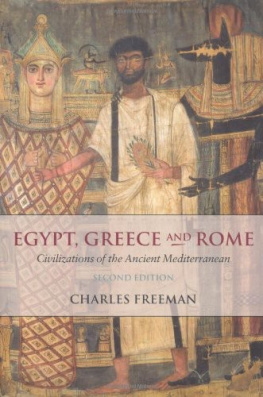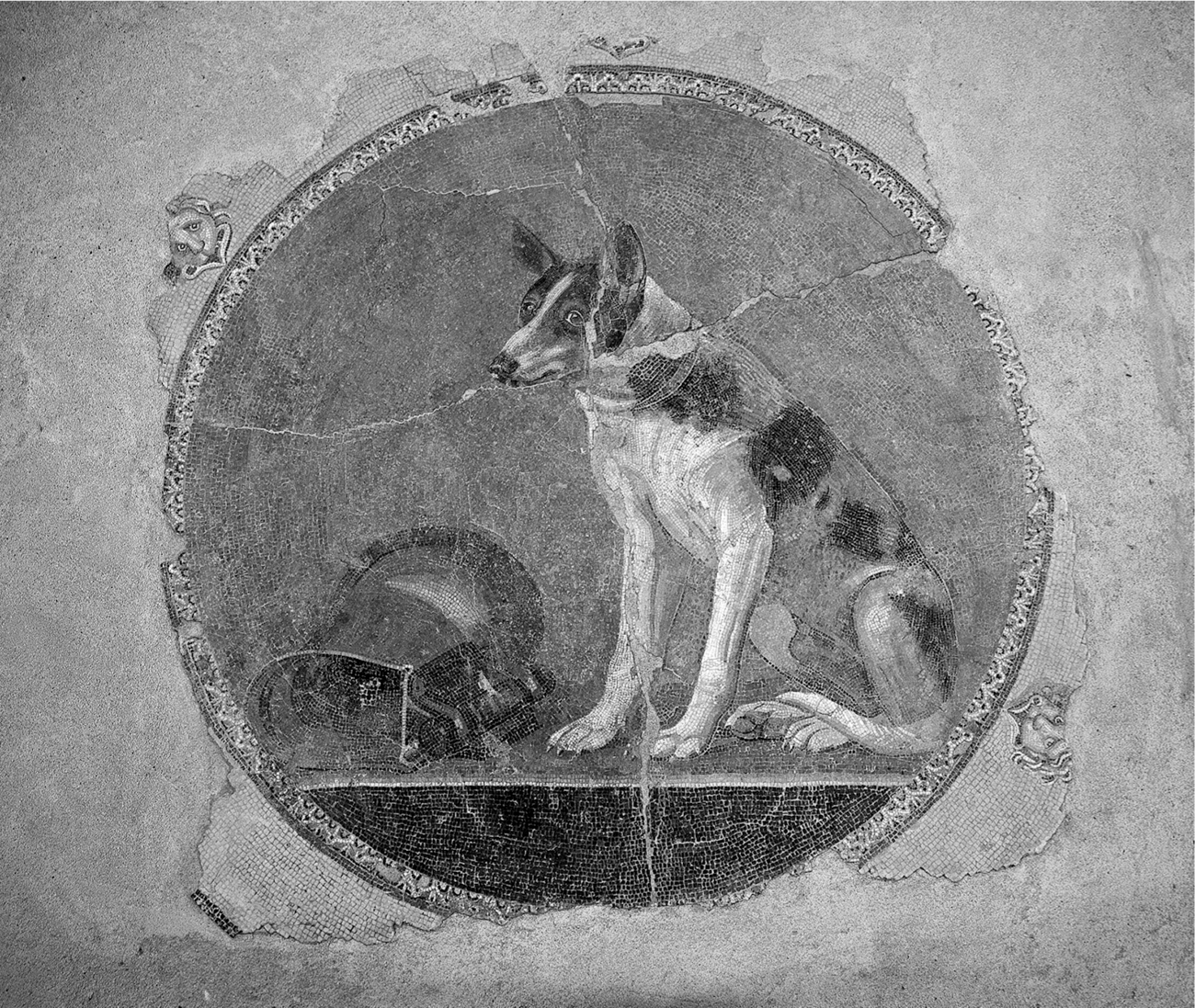
FRONTISPIECE. Dog mosaic recently discovered at Alexandria. Copyright Bibliotheca Alexandrina Antiquities Museum/Photo by Mohamed Aly
THE OPEN SEA
The Economic Life of the Ancient Mediterranean World from the Iron Age to the Rise of Rome
J. G. MANNING
PRINCETON UNIVERSITY PRESS
PRINCETON AND OXFORD
Copyright 2018 by Princeton University Press
Published by Princeton University Press
41 William Street, Princeton, New Jersey 08540
In the United Kingdom: Princeton University Press
6 Oxford Street, Woodstock, Oxfordshire OX20 1TR
press.princeton.edu
Jacket illustrations courtesy of Adobe Stock (Juulijs)
Jacket design by Chris Ferrante
All Rights Reserved
Library of Congress Control Number 2017954509
ISBN 978-0-691-15174-8
British Library Cataloging-in-Publication Data is available
This book has been composed in Garamond Premier Pro
Printed on acid-free paper.
Printed in the United States of America
1 3 5 7 9 10 8 6 4 2
In memory
of
Karl W. Butzer
(19342016)
&
Mark Pagani
(19602016)
CONTENTS
ILLUSTRATIONS
MAPS
FIGURES
.
TABLES
PREFACE
A FEW YEARS AGO, I began to think about writing a small book on a large subject, to quote one of the great economists of the 20th century. The end result is larger and a little different than I had originally thought, but I have managed, I think, to write a reasonably sized volume on what is now a gigantic topic. It surveys, and I emphasize surveys, the major economic systems of the first-millennium BCE Mediterranean world from the beginning of the Iron Age down to the end of the Second Punic War (ca. 201 BCE ), when a shift in political and military power marked the beginning of the process of Roman domination of the entire Mediterranean basin. I am taking on a larger scale of analysis, roughly eight hundred years of complex history, which is not the norm, and many historians might quibble about the lack of detail. For some topics such as household management I go even further back to illustrate some of the important structural continuities. The meso-scale that eight hundred years provide brings the many subspecialties of ancient history to the same table to ask: How can we understand the great changes seen throughout the Mediterranean world in these centuries? Moses Finleys influential book Th e Ancient Economy (1973), built a model for classical economies covering fifteen hundred years, from the beginning of Greek civilization to the end of the Roman Empire.
I, in contrast, do not tell a single story in these pages. Rather, I want to interweave several different stories that lead up to the unification of the Mediterranean under Rome. While Finleys temporal scale was about right, he left out altogether the early Iron Age expansion, western Asia, Egypt, and the Hellenistic period in general. The first millennium BCE was a transformational period in the economic history of the Mediterranean world. There was no capitalist takeoff, as Finley would have been quick to assert. But to view ancient economies from this perspective is to anticipate the Industrial Revolution. Instead what I am interested in here is the economic world before Rome, the achievements of these civilizations, how problems were solved, and the ways in which cross-cultural exchange deeply affected economic change.
I have two main aims. The first is to explore recent developments and trends in the study of first-millennium BCE Mediterranean economies. Secondly, while comprehensive coverage would be sheer folly, I hope that this book provides a broad account and an introduction to the material of the lived human experience in the Mediterranean basin in those centuries. I cannot hope to pursue all the themes or topics treated here as thoroughly as I would like, and I place some emphasis on Egypt, the Near East, and the eastern half of the sea. Each of my chapters requires book-length treatment by a team of specialists. What I want to do instead is to give the reader a sense of how exciting the study of premodern economies is at the moment, and what I think will be some of the important ideas to pursue in the years ahead.
At the heart of this book is an effort to understand economic development during the first millennium BCE , a period of momentous political, economic, and social change in many parts of the world. I depart from most prior work on premodern economies by understanding Iron Age Mediterranean civilizations not as separate but as interconnected cultural entities within particular environmental and geographic niches. The economics literature that explains how and why institutions matter is now enormous. What premodern history contributes to it is to show how institutions are historically contingent and culturally determined. Climatic change and human adaptation to it, migration, demography, and cross-cultural exchange patterns were all important factors in moving societies, and in shifting political equilibriums. The cultural and temporal boundaries usually drawn between the civilizations of the ancient Near East and the classical world have been too sharply drawn at times This reification of the classical, ancient Near East, and Egyptian worlds has obscured cross-cultural exchange within what was the large region of western Asia/eastern Mediterranean, the western core.
The conflation of ancient with classical civilization ipso facto misses much in terms of longer-run development, interaction, and change. To be sure, the differential impacts of climate change, and the strong rainfall/irrigation gradient between core Mediterranean territories and the Nile and Tigris/Euphrates River valleys played important roles in developmental pathways. Yet a broader Iron Age perspective modifies our understanding of institutional change and also sets in better relief the achievements of the Greco-Roman world. Rome did end up dominating the Mediterranean by similar processes that led to the later European divergence because of its more rapid evolution in adaptive competitiveness and in military technology, something Herodotus also noted for the Greeks.
Military power and empire building were crucial factors in political change, but many other things must be brought in to understand economic performance. One of my interests, then, is to highlight the constraints as well as the enabling conditions in premodern economies imposed both by institutions and by environments that account for differences in performance.
The study of premodern economies has become a very large and very exciting field in the last forty years, as my bibliography, concentrating in works in English and by no means comprehensive, attests.
Several forces drove cultural and economic exchange, and in the first millennium BCE we must treat the northern Mediterranean as politically and economically linked to western Asia, North Africa, and Egypt.
There is a second sense of the word open that I want to pursue in this book, and that is in the sense that future research in premodern economies will of necessity have to be more open, more permeable across many different academic enterprises. Not just in humanistic fields where the boundaries are mainly ancient languages, but embracing the full array of the social sciences, and the physical and biological sciences as well. Karl Butzers plea for true interdisciplinary work between humanists and social, natural, and physical scientists should be the guiding principle, and I join Robert McCormick Adams in saying let the boundaries dissolve. Building more complex models of human behavior and identifying causal relationships in feedback loops demand that historians understand the potential contributions of the social, biological, and physical sciences. Not all historians will accept the idea that we should be aware of work in the biological or geophysical sciences, but if progress is going to made it is something that I believe we must do. The implication is that at least some of our work should be organized in flexible teams around answering questions and solving problems, rather than continuing to labor alone in our studies.
Next page

